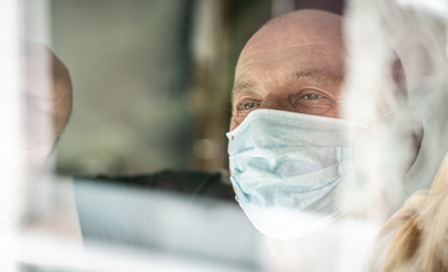
COVID-19 Resources
Our efforts continue to center around prompt identification of patients with symptoms of the virus causing concern worldwide and taking appropriate steps to minimize exposure to patients, staff and others.
If you are experiencing symptoms of Coronavirus (COVID-19) with dry cough, difficulty breathing, fever, chills, repeated shaking with chills, muscle pain, headache, sore throat or new loss of taste or smell, we recommend taking an at home COVID-19 test. If positive, or if you need further medical guidance or treatment, please contact your Primary Care Providers office.